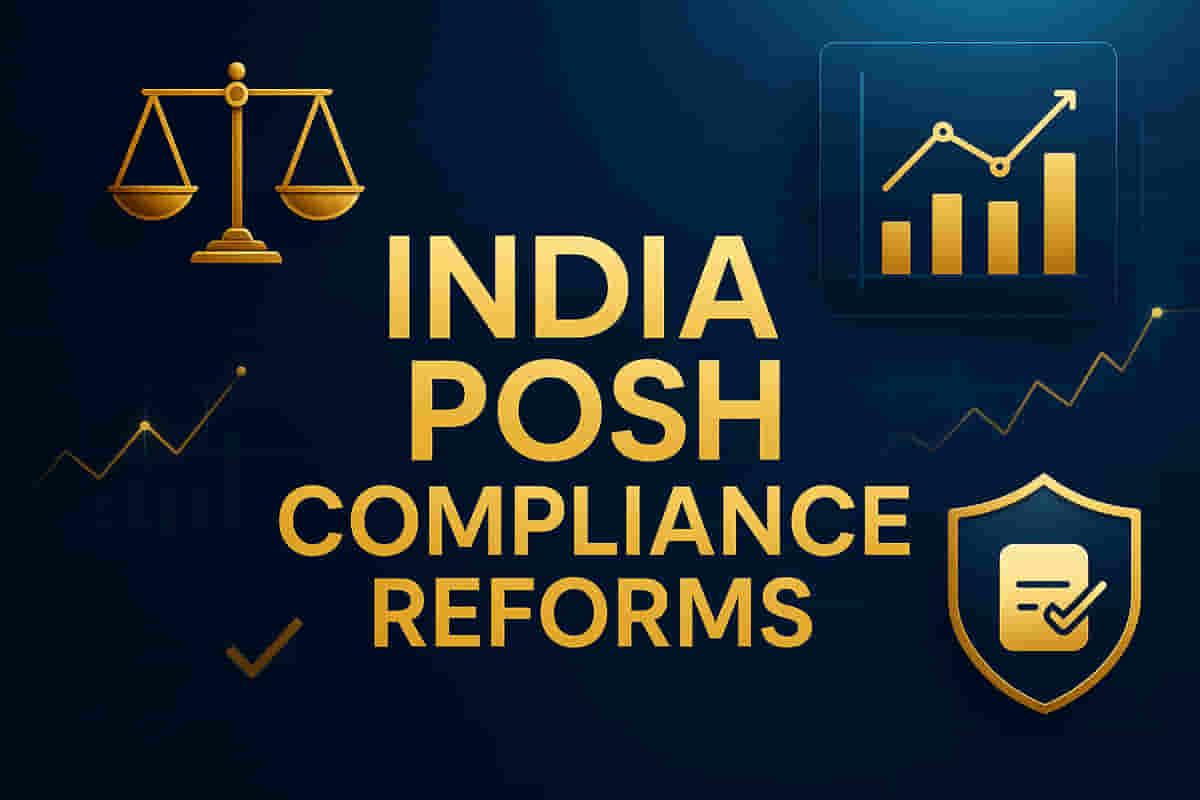India Mandates Stricter Workplace Harassment Laws: New Disclosures and Digital Compliance for Companies
Economy
|
30th October 2025, 8:36 AM

▶
Short Description :
Detailed Coverage :
India is undergoing a substantial reform of its Sexual Harassment of Women at Workplace (Prevention, Prohibition and Redressal) Act, 2013 (POSH Act). A key development is the amendment to the Companies (Accounts) Rules, 2014, effective July 14, 2025, which mandates detailed disclosures on sexual harassment in the Board's Report. Companies must now report the number of complaints received, disposed of, and pending for over 90 days, along with employee gender composition. This shifts focus from mere policy presence to demonstrable implementation and transparency.
The Supreme Court has amplified enforcement by directing all state governments to conduct compliance audits, emphasizing the necessity of functional Internal Complaints Committees (ICCs). These committees must include external members and be regularly trained. The Court's intervention places ICCs under judicial scrutiny, making non-compliance a serious issue.
Digital tools like the SHe-Box portal are also expanding, allowing broader access for filing complaints. The Government of NCT of Delhi has directed all entities to register their ICs on SHe-Box, reinforcing digital accountability. Furthermore, the Sexual Harassment of Women at Workplace (Prevention, Prohibition and Redressal) Amendment Bill, 2024, proposes extending the complaint filing window to one year and removing conciliation before inquiry, aiming to improve access to justice for survivors.
Impact: These reforms will necessitate increased vigilance in data management, training, and inquiry procedures for companies. They are expected to enhance corporate governance, transparency, and investor confidence by demonstrating a commitment to safe workplaces. The shift towards substantive compliance and digital oversight is significant for all businesses operating in India. Impact Rating: 8/10
Difficult Terms: POSH Act: Sexual Harassment of Women at Workplace (Prevention, Prohibition and Redressal) Act, 2013. A law designed to protect women from sexual harassment at work. Companies (Accounts) Rules, 2014: Rules governing the accounting and financial reporting practices for companies in India. Board's Report: A section within a company's annual report detailing its operations, management, and governance practices. Internal Complaints Committees (ICCs): Committees established by organizations under the POSH Act to receive and address sexual harassment complaints internally. Suo motu cognizance: When a court takes action or judicial notice of a matter on its own initiative, without a formal request from parties. SHe-Box: An online portal provided by the Ministry of Women and Child Development for women to file complaints related to workplace sexual harassment. Conciliation: A method of dispute resolution where parties attempt to reach a mutually agreeable settlement with the help of a neutral third party. Limitation Period: The maximum time allowed by law to initiate legal proceedings after an incident occurs.